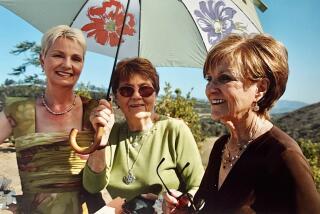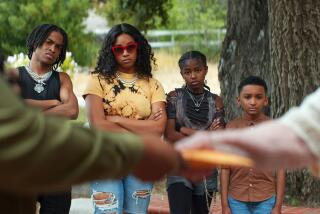Mothers and Children
- Share via
To Mark Silver’s article on family films about motherless children (“MMIA: Mothers Missing in Action,” Oct. 10) I’d like to add that fairy tales and myths are also rife with examples of mother loss (“Cinderella,” “Rapunzel,” “Snow White,” “Antigone”). It’s a plot, as Silver points out, that speaks directly to a child’s greatest fear, but it’s also an archetypal device used to force a daughter into premature independence. The hero’s journey is depicted as accessible to women only when the mother is absent. Television also has relied on variations of this theme since its inception. From “The Farmer’s Daughter” and “Bachelor Father” to “Gidget” and “Family Affair” all the way up to “Full House,” “Empty Nest” and “Blossom,” motherless--and parent-less--families have been overrepresented on television, way out of proportion to current demographic reality.
A comedic device? A dramatic technique? The need for more star vehicles for male actors? Probably all three. But even as removing the mother from a family clearly limits even further the number of roles available for middle-aged women, it’s worth acknowledging that, as a result, television (“Party of Five”) and film (“My Girl,” “Fly Away Home”) have created some solid opportunities for younger actresses. Hollywood is only doing what the Brothers Grimm did years ago: removing the aging woman from a position of power in order to celebrate the resourcefulness of youth.
HOPE EDELMAN
Author, “Motherless Daughters”
Los Angeles
More to Read
Only good movies
Get the Indie Focus newsletter, Mark Olsen's weekly guide to the world of cinema.
You may occasionally receive promotional content from the Los Angeles Times.










